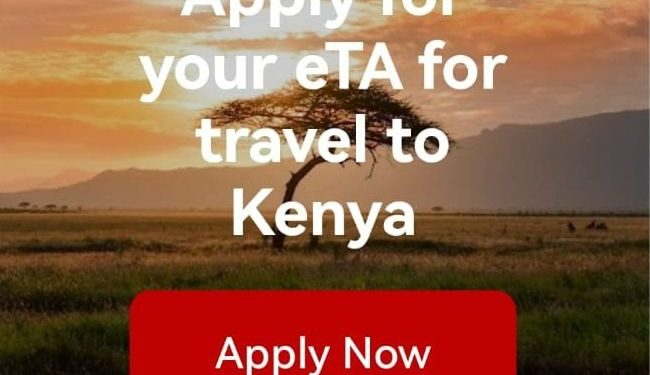Kenya wants to welcome 5 million tourists by 2030. But fraudulent eTA websites are sabotaging that goal before travelers even book their flights.
The Scam That Costs Families Hundreds
Dozens of fake websites now mimic Kenya’s official eTA portal at evisa.go.ke. These scam sites rank high on search engines and charge travelers USD 50-150 extra per person. They offer no actual service beyond forwarding applications to the real system.
A family of four can lose USD 400 before they’ve even booked a hotel. For travelers planning safaris or beach holidays, this deception creates frustration that sometimes ends trips before they start.
Some visitors cancel their Kenya plans entirely after feeling scammed. Others turn to online forums where they describe Kenya’s entry requirements as “confusing,” “hard to navigate,” or “risky.”
That reputation damage hurts badly. Tourism generates 10 percent of Kenya’s GDP. Each deterred visitor represents a USD 1,466 loss to hotels, guides, transport companies, and local communities.
Why Kenya Trails Its Competitors
Travel expert Havar Bauck from Hotel Online points out an uncomfortable truth. Morocco welcomes 17.4 million visitors annually with visa-free or visa-on-arrival policies. Egypt, Tunisia, and South Africa do the same for their major markets.
Kenya removed visa-on-arrival in 2021, which slowed post-Covid tourism recovery. While numbers have improved, the country still lags far behind competitors.
“If Kenya wants to compete seriously, it needs to remove barriers. Simplicity always wins,” Bauck explains. He advocates for Kenya to either go fully visa-free or bring back free visa-on-arrival with optional online registration.
Security Concerns Don’t Hold Water
Some officials worry that scrapping eTA requirements creates security risks. Bauck disagrees strongly.
“All the information immigration needs is in the passport. If someone is wanted internationally, it will show in the system immediately,” he notes. He points to automated e-gates in the UAE and Singapore where visa-exempt travelers simply scan passports and enter.
That seamless process frees immigration officers to focus on high-risk cases instead of processing routine arrivals.
Tanzania travel advisory November 2025: what it means for Kenya tourism this christmas season.
Tour Operators Feel the Pain
Tour operators report frustrated clients who accidentally pay scam sites, then blame them for the confusion. Some clients lose trust and book competing destinations instead.
The scam sites mimic everything about the official portal. They copy layouts, wording, and even fake the ‘.go.ke’ extension. For travelers unfamiliar with Kenya’s systems, spotting the fraud becomes nearly impossible.
What Needs to Change Now
Kenya needs a multi-pronged response. Stronger public awareness campaigns must direct travelers to the official evisa.go.ke portal. The government should collaborate with search engines to demote fraudulent sites in rankings.
Embassies, airlines, and tourism channels need clearer messaging about the real eTA process. But experts argue Kenya should go further by reconsidering visa policy altogether.
“Tourism is one of Kenya’s strongest global brands. The world already loves Kenya. Now Kenya just needs to make it easy for the world to come,” Bauck insists.
The country stands at a crossroads. It can continue fighting an uphill battle against scam sites while maintaining barriers. Or it can eliminate those barriers entirely and let its natural attractions do the talking.
For a destination competing against visa-free Morocco and Egypt, the choice seems clear. Kenya’s wildlife, beaches, and culture already win hearts. The question is whether bureaucracy will let visitors actually experience them.
















